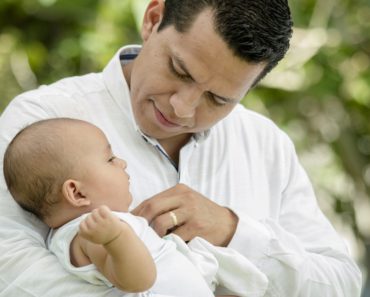Contents
- 1 Exploring the Effectiveness of Marital Therapy for Stepparents: Does It Really Work?
- 2 The Effectiveness of Marital Therapy for Stepparents
- 3 Key Components of Successful Marital Therapy in Stepparenting
- 4 Challenges and Considerations in Marital Therapy for Stepparents
- 4.1 What are the specific challenges that stepfamilies face in the context of marital therapy, and how does therapy address these challenges?
- 4.2 What evidence-based approaches or interventions have been found to be effective in improving the marital satisfaction and communication skills of stepcouples in therapy?
- 4.3 How does the involvement of children from previous relationships impact the effectiveness of marital therapy in stepfamilies, and what strategies can therapists use to successfully engage the entire family system in treatment?
- 4.4 Related Posts

Marital Therapy: Does it Work? Discover the effectiveness of marital therapy in overcoming challenges faced by stepparents. Explore the benefits, strategies, and success stories, as we delve into the world of therapy and its impact on blended families. Uncover ways to improve communication, strengthen bonds, and create a harmonious environment. Dive into this insightful article on Stepparent Magazine now!
Exploring the Effectiveness of Marital Therapy for Stepparents: Does It Really Work?
Exploring the Effectiveness of Marital Therapy for Stepparents: Does It Really Work?
Marital therapy has long been considered a beneficial tool for couples facing challenges within their relationships. However, when it comes to stepparents, the effectiveness of marital therapy is a topic that warrants further exploration.
Stepparenting can present unique challenges due to the blending of families and the complex dynamics involved. The role of a stepparent is often accompanied by feelings of uncertainty, insecurity, and resentment from both the stepparent and the biological parent. These factors can significantly impact the dynamic between the couple and hinder their ability to maintain a healthy and stable relationship.
Research suggests that marital therapy can indeed be effective in improving the relationship between stepparents. Through communication training, conflict resolution techniques, and fostering empathy, therapists can help stepparents navigate the challenges they encounter. By addressing the underlying issues and providing tools for effective communication, marital therapy can promote understanding and cooperation within the couple.
However, it is important to acknowledge that not all marital therapy approaches work equally well for stepparents. Some therapists may need to adapt their techniques specifically to address the complexities of stepparenting. Additionally, it is crucial for both the stepparent and the biological parent to actively participate in the therapy process and be open to self-reflection and growth.
Evaluating the long-term effectiveness of marital therapy for stepparents is another aspect that requires attention. While short-term improvements may be observed, research should focus on examining whether these changes are sustained over time. Moreover, exploring the impact of therapy on the overall family system, including the relationships between stepparents and stepchildren, is essential to gain a comprehensive understanding of its effectiveness.
In conclusion, while marital therapy holds promise for stepparents, further research is needed to fully understand its effectiveness in this context. By tailoring therapy approaches to address the unique challenges faced by stepparents and evaluating long-term outcomes, couples and therapists can work towards building healthier and more harmonious blended families.
The Effectiveness of Marital Therapy for Stepparents
Marital therapy can be an effective tool for stepparents navigating the complexities of blending families. This section explores how therapy can help improve communication, resolve conflict, and strengthen relationships within a stepfamily.
Key Components of Successful Marital Therapy in Stepparenting
Successful marital therapy for stepparents involves several important components. These include establishing clear goals, addressing past hurts and resentments, developing effective co-parenting strategies, and fostering empathy and understanding among family members.
Challenges and Considerations in Marital Therapy for Stepparents
While marital therapy can be beneficial for stepparents, it is important to acknowledge the unique challenges and considerations that may arise. This section discusses potential obstacles such as loyalty conflicts, differences in parenting styles, and managing expectations, along with strategies for navigating these issues in therapy.
What are the specific challenges that stepfamilies face in the context of marital therapy, and how does therapy address these challenges?
In the context of marital therapy, stepfamilies may face several specific challenges that can impact their dynamics and relationships. These challenges include:
1. Role ambiguity: Stepfamilies often struggle with defining and adjusting to new roles within the family structure. This can lead to confusion, conflict, and unrealistic expectations among family members.
2. Parent-child boundaries: Establishing and maintaining appropriate boundaries between stepchildren and stepparents can be challenging. Issues such as discipline, authority, and loyalty can arise, causing tension and disagreements.
3. Co-parenting issues: Stepfamilies may have complex co-parenting dynamics due to involvement from multiple biological parents. Conflicting parenting styles and differences in values and rules can create conflicts that need to be addressed in therapy.
4. Past relationship baggage: Both partners in a remarriage may bring unresolved issues from previous relationships into the new family unit. This can contribute to insecurities, trust issues, and emotional challenges that require therapeutic intervention.
5. Ex-partner involvement: If one or both partners have ongoing contact or involvement with their ex-partners, it can add another layer of complexity to the stepfamily dynamics. Balancing communication and boundaries with ex-partners can be challenging.
In therapy, these challenges are addressed through various therapeutic techniques and interventions. Therapists work with stepfamilies to:
1. Normalize experiences: Therapists help stepfamilies understand that their challenges are common in the context of blended families, and they are not alone in facing them. Normalizing experiences can alleviate some of the stress and guilt experienced by family members.
2. Foster open communication: Therapists encourage open, honest, and non-judgmental communication within the stepfamily. This allows family members to express their needs, concerns, and expectations in a safe and respectful manner.
3. Establish clear roles and boundaries: Therapists assist stepfamilies in defining specific roles and responsibilities for each family member. This helps clarify expectations and reduce role ambiguity within the family unit.
4. Promote empathy and understanding: Therapists facilitate discussions that promote empathy and understanding among family members. This helps build stronger connections, foster mutual respect, and enhance overall family cohesion.
5. Develop effective co-parenting strategies: Therapists help stepfamilies navigate co-parenting challenges by fostering effective communication and problem-solving skills. They provide guidance on how to navigate conflicts and create shared parenting goals.
6. Address unresolved emotional issues: Therapists provide a safe space for family members to process and work through any unresolved emotional issues they may be bringing from past relationships. This can help individuals heal and create healthier relationships within the stepfamily.
By addressing these specific challenges through therapy, stepfamilies can develop healthier dynamics, improve communication, and build stronger relationships within the blended family unit.
What evidence-based approaches or interventions have been found to be effective in improving the marital satisfaction and communication skills of stepcouples in therapy?
Research has shown that several evidence-based approaches and interventions can be effective in improving the marital satisfaction and communication skills of stepcouples in therapy.
1. Emotionally Focused Therapy (EFT): EFT focuses on helping stepcouples recognize and address underlying emotional needs and attachment issues. It aims to improve emotional bonding and create a secure and supportive relationship. Studies have found that EFT can significantly increase marital satisfaction and communication skills among stepcouples.
2. Cognitive-Behavioral Therapy (CBT): CBT helps stepcouples understand and change unhelpful patterns of thinking and behavior. It focuses on improving communication skills, problem-solving, and conflict resolution. Research has shown that CBT can lead to significant improvements in marital satisfaction and communication for stepcouples.
3. Family Systems Therapy: This approach emphasizes understanding the dynamics and interactions within the entire family system, including stepchildren and biological parents. By addressing family roles and boundaries, this therapy can help improve communication and reduce conflicts within stepfamilies.
4. Parenting Education and Support: Stepfamilies often face unique challenges in co-parenting and blending families. Providing parenting education and support specifically tailored for stepcouples can enhance their communication skills and ability to navigate parenting issues effectively.
5. Prevention and Education Programs: These programs aim to provide stepcouples with information and skills before issues arise. They focus on topics such as realistic expectations, effective communication, conflict resolution, and building resilience in step-relationships. Studies have shown that participation in prevention and education programs can lead to increased marital satisfaction and better communication.
It’s important to note that the effectiveness of these approaches may vary depending on individual circumstances and the specific needs of each stepcouple. It is recommended to seek the guidance of a qualified therapist who specializes in working with stepfamilies to determine the most appropriate approach.
How does the involvement of children from previous relationships impact the effectiveness of marital therapy in stepfamilies, and what strategies can therapists use to successfully engage the entire family system in treatment?
The involvement of children from previous relationships can significantly impact the effectiveness of marital therapy in stepfamilies. These children may have complex emotions and loyalties to their biological parents, which can create challenges in building trust and forming a cohesive family unit.
Therapists can use several strategies to successfully engage the entire family system in treatment:
1. Individual sessions: It can be beneficial for therapists to conduct individual sessions with each family member, including children from previous relationships. This allows them to express their feelings and concerns without any judgment or fear of retribution.
2. Education: Providing information about the unique dynamics and challenges faced by stepfamilies can help normalize their experiences. This can include educating the family members on common issues such as loyalty conflicts and ambiguous roles.
3. Family meetings: Regular family meetings can provide a safe space for open communication and problem-solving. All family members should be encouraged to participate and share their thoughts and feelings.
4. Building trust: Therapists should focus on building trust within the family system. This can be accomplished by creating a non-judgmental environment where everyone’s perspectives are heard and respected.
5. Setting realistic expectations: Stepfamilies often face unique challenges that require time and patience to navigate. By setting realistic expectations for the therapeutic process, therapists can help families understand that progress takes time.
6. Encouraging empathy: Therapists can help family members develop empathy and understanding for each other’s experiences. This can foster compassion and promote better communication and conflict resolution.
7. Providing resources: Therapists should offer resources and support outside of therapy, such as books, articles, and support groups specifically tailored to stepparenting and stepfamily dynamics.
In summary, involving children from previous relationships in marital therapy in stepfamilies requires strategic approaches and an understanding of the unique challenges that arise. By implementing these strategies, therapists can help engage the entire family system and increase the effectiveness of treatment.
In conclusion, marital therapy has proven to be an effective tool in the context of stepparenting. Through these therapy sessions, couples can improve their communication, resolve conflicts, and develop strategies to navigate the unique challenges that come with blended families. However, it is important to note that the success of marital therapy depends on the commitment and willingness of both partners to actively participate and make necessary changes. By seeking professional help and investing in their relationship, stepparents can foster a harmonious and fulfilling family dynamic for all members involved.







